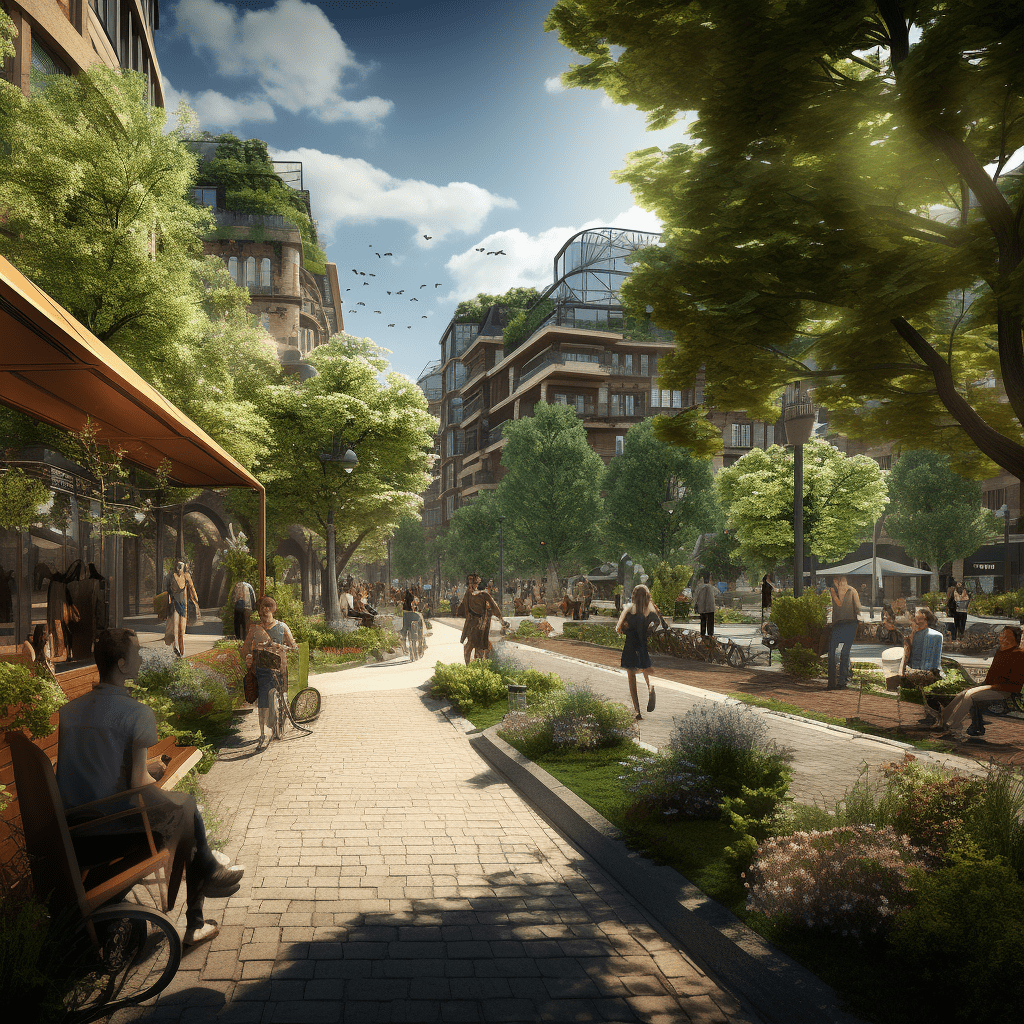Today, on 22 September, we celebrate World Car-Free Day. This global event encourages people from all walks of life to leave their cars at home for a day, and explore alternative modes of transportation.
With climate change becoming a more pressing concern with each passing year, the importance of reducing our carbon footprints grows greater – and World Car-Free Day is a call to action. It’s a day to consider what this world might look like with reduced traffic and reduced carbon emissions.
What sort of a world are we leaving to the next generations?
We have some practical suggestions to share for companies looking to go greener, but first, let’s take a look at the history and evolution of World Car-Free Day.
The First Car-Free Days
The idea for World Car-Free Day can be traced back to the 1970s – around the time that environmental concerns were just beginning to gain momentum. It became a reality in the 1990s though. After a moving speech by political scientist Eric Britton at the International Accessible Cities conference in Toledo, Spain, in 1994, numerous cities launched plans to have whole days without motor transport.
In France, La Rochelle and Lyon were amongst the first cities to implement car-free days, demonstrating how reduced traffic could help to combat air pollution and promote a more sustainable way of living. Similar events would be held in Reykjavík (Iceland) and Bath (United Kingdom).
The European Car-Free Network (ECFN) was founded in 1994, and envisioned a world where city streets would be reclaimed from the dominance of automobiles… paving the way for cleaner air, healthier communities, and reduced carbon emissions.
Then in 1997, World Car-Free Day was formally established as a global event.
Participating cities close their main streets to cars, and citizens are encouraged to try getting about in other ways. Public transport, bikes, walking, or scooters – the idea is to give people a taste of alternate modes of transportation, and show the world a potential model for more sustainable and smog-free urban living.

The Benefits of Going Car Free
Okay, first, let’s be honest: we’re not talking about a world without cars. That would be crazy! Cars are great and we love them. Where would we be without cars?
However, take a look at any urban commuter rush, and you’ll see roads packed full of single-passenger automobiles. Or come down to sunny Devon and visit Alvio HQ in the summer months… and we can show you resort towns and picturesque villages clogged full of London cars.
Given the current state of the environment too, it should be clear to everyone that perhaps we – as a society – should maybe be using our cars a little less. Ride-sharing schemes, better train connections and public bus routes, not to mention eco-friendly alternatives like bikes and scooters, have a massive potential right now to help us make our cities and roads better.
And just consider some of the positive impacts this could have:
- Cleaner air. Reduced car emissions would lead to significantly cleaner air in our cities, which has been shown to reduce rates of asthma and other respiratory diseases.
- Less congestion. With fewer cars on the road, we could all get where we’re going faster, with less stress, and less strain on our urban infrastructure.
- Greener spaces. Imagine if we started turning excess car parks into urban gardens. And roads that suddenly needed fewer traffic lanes could instead have cycle paths and green space on either side. Our cities would look better with fewer cars, and we’d feel better being in them.
- More active lifestyles. A lot of us could probably do with getting more exercise these days… if cities were built to be quick and convenient to traverse on foot, by cycle or by scooter, a lot more people would be getting regular exercise, leading to healthier and happier populations.
- Reduced noise pollution. Fewer cars mean less noise pollution, allowing for quieter and more peaceful urban environments.
- Stronger communities. With fewer people cocooned in cars, there would be more opportunities for social interaction on the streets, and a sense of community. Streets could be reclaimed as public spaces for gatherings and events.
- Lower carbon emissions. And of course, here’s a big one: a substantial decrease in carbon emissions. This would play a crucial role in combating climate change and preserving our planet for future generations.
Car-Free Sustainability – How Do We Get There?
Alright, so the benefits of a reduced-carbon lifestyle all sound very appealing. But how do we get there? It can feel depressing at times, considering how little impact one individual can make when the top producers, nations, and industrial firms seem hesitant to change.
However, for those in business there are real and tangible things we can do to help reduce carbon emissions. So we leave you with an action plan, that you can put to use in your own business:
Invest in Electric Vehicles (EVs)
Transitioning corporate fleets to electric vehicles can significantly reduce carbon emissions. For example, look at what our friends at eSkuta are doing: their sleek and lightweight electric scooters present a fantastic alternative to cars. One overnight charge will take you up to 50 miles on the road, with zero carbon emissions.
Reduce product mileage
We can all benefit from reducing our dependence on freight – and one of the advantages of the Alvio model is how it enables brands to move data instead of products. Our collaborative commerce model has been shown to reduce the mileage products travel by up to 17%, which is a significant reduction to your carbon footprint.
Set emission reduction goals
Establish clear and measurable carbon reduction goals, and regularly track and report progress to stakeholders. This is what Saint Piran have done – we recently spoke with Richard Pascoe about the Cornish cycling team’s commitment to reaching Net Zero, and you can read more about their journey in our Saint Piran Brand Spotlight.
And while we’re here, how about two more things to think about:
Buy green when you can
It’s not always easy to buy green, but our partners at Canopey have made it their mission to help you there. Canopey provide ethical alternatives and green solutions to modern commerce demands. From fair trade fashion items and beauty products, to vegan food and drink, they’re catering to a growing awareness of – and demand for – sustainable goods.
Use recycled products
As we discussed in our recent Anti-Junk Promise article, every year greater and greater volumes of waste end up in landfills, or in the oceans. An excellent example of smart recycling is Coral Eyewear, who use reclaimed plastic waste to create their stylish eyewear range. You can learn more about that in our Coral Eyewear Brand Spotlight.
We Can Only Do This Together
Here at Alvio, we are big believers in sustainable business. We partner with brands who share our values, and we genuinely believe that teamwork is the key to preserving this beautiful planet of ours for future generations.
So on this World Car-Free Day, let’s all think about what we can do to lighten the carbon load a little… and to foster a culture of sustainability within our own companies. Let’s build a beautiful future together.



